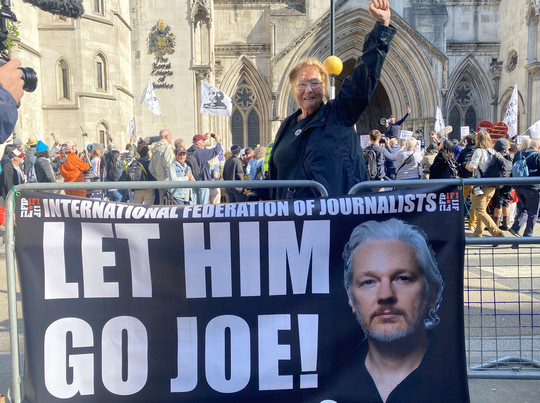The UK courts, which have been considering an application to deport Assange since February 2020, had sought assurances from the US, that were Assange to be tried, he would be protected by the First Amendment as would a US citizen. This is the provision that safeguards free speech and press freedom.
The response from across the Atlantic was the Assange could ‘request’ the constitutional guarantee of free speech, but that their application would be at the discretion of the court. The British judges decided that this was insufficient, and created the risk that Assange would suffer prejudice by virtue of being Australian.
IFJ president Dominique Pradalié who was in court for the hearing, said: “The judges have made the right decision – the threat to free speech that this attempted prosecution creates should be of concern to us all. So too should the health of Julian Assange – at least he can now plead his case. He should be freed at once.”
After the hearing, Assange’s wife Stella said: “This judgement should be a turning point, and a signal to the United States. It adds weight to the opinion delivered to President Biden recently by 40 professors of law that this whole attempted prosecution is an existential threat to the First Amendment. I hope that he will recognise this and drop the whole case”.
She also described speaking with Assange after the judgement, saying that he would be able to exercise in the sunshine enjoying his “first good news in a long time”.
There have been a number of hints from the US that the case might be dropped. President Biden told a reporter that he was considering this possibility. The US ambassador to Australia has previously said that plea deal was under consideration.
Assange is fighting extradition to the United States to face 18 charges arising from the leaking and publication of the Afghan and Iraq war logs in 2010. Most of the charges are brought under the Espionage Act. The IFJ, which has monitored the hearings from the outset, and long warned that successful prosecution would effectively criminalise such normal journalistic acts as seeking a source to wrong doing, helping a source compile evidence and publishing the results.

